#International schools in Dubai
Explore tagged Tumblr posts
Text
Quality Introduced: Exploring Education's Top Dubai Schools by Arcadia School
#british schools dubai#top dubai schools#schools in Dubai#international schools in dubai#dubai british schools
0 notes
Text
What is the importance of extracurricular activities and international schools in Dubai?

The Role of extracurricular activities in Shaping well-rounded students.
Extracurricular activities play a vital role in the overall development of students, extending beyond the confines of the classroom. These activities encompass a wide range of interests and provide students with unique opportunities for personal growth, skill development, and social interaction. This essay will explore the importance of extracurricular activities specifically in international schools in Dubai.
Exploring the importance of extracurricular activities in international schools in Dubai
Dubai, known for its multicultural environment and diverse international schools, recognizes the significance of extracurricular activities in fostering well-rounded students. This overview will delve into the various benefits of engaging in extracurricular activities, how they are implemented in Dubai's international schools, their impact on college admissions, success stories of students who have benefited from such activities, and the challenges faced in incorporating them into students' lives.
II. Benefits of Extracurricular Activities

A. Development of social and interpersonal skills
Participating in extracurricular activities provides students with opportunities to develop important social and interpersonal skills. Firstly, teamwork and collaboration are fostered through group projects, team sports, and joint performances. Students learn to work together, appreciate diverse perspectives, and contribute effectively to achieve common goals. Secondly, communication and leadership skills are honed as students take on leadership roles within clubs or organizations, enabling them to express themselves confidently, delegate responsibilities, and motivate their peers.
B. Enhancing academic performance
Engaging in extracurricular activities can positively impact academic performance. Firstly, students learn valuable time management and organizational skills as they balance their academic workload with extracurricular commitments. By effectively managing their time, they develop discipline and become more efficient in handling multiple responsibilities. Secondly, these activities provide real-life contexts for applying knowledge gained in the classroom, allowing students to see practical applications of their learning and reinforcing their understanding of academic concepts.
C. Boosting personal growth and self-confidence
Extracurricular activities offer students a platform for personal growth and the opportunity to build self-confidence. Firstly, these activities allow students to explore and discover their talents and interests beyond the academic curriculum. Whether it's joining a sports team, participating in a debate club, or pursuing creative arts, students can uncover hidden abilities and passions, fostering a sense of purpose and self-identity. Secondly, through extracurricular activities, students face challenges, both individual and team-oriented, enabling them to develop resilience, problem-solving skills, and the ability to overcome obstacles.
III. Extracurricular Activities in Dubai's International Schools
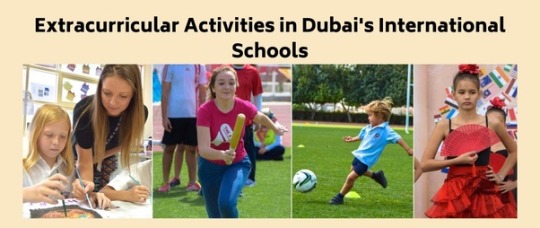
A. Overview of the diverse range of extracurricular activities offered
International schools in Dubai provide a wide array of extracurricular activities catering to diverse interests and talents. Firstly, sports and athletics programs offer opportunities for students to engage in team sports, individual athletics, and physical fitness activities. Secondly, arts and creative pursuits, such as music, drama, and visual arts, allow students to express their creativity and develop their artistic skills. Lastly, clubs and student organizations cover a broad spectrum of interests, including academic clubs, language clubs, cultural clubs, and special interest clubs, providing students with platforms to explore their passions and collaborate with like-minded peers.
B. Integration of cultural diversity in extracurricular activities
Dubai's international schools embrace cultural diversity and incorporate it into extracurricular activities. Firstly, cultural festivals and celebrations are organized to promote cultural understanding and appreciation among students. These events showcase different traditions, customs, and performances from various cultures represented in the school community. Secondly, multicultural clubs and initiatives provide a space for students to engage with peers from different backgrounds, fostering cross-cultural dialogue and friendships.
C. Collaboration with local community organizations
Dubai's international schools actively collaborate with local community organizations to offer extracurricular activities with a social impact. Firstly, community service and volunteering opportunities are provided to instill a sense of social responsibility in students. By engaging in activities such as environmental clean-ups, charity drives, or fundraising events, students develop empathy, compassion, and a broader understanding of societal needs. Secondly, partnerships with non-governmental organizations (NGOs) and charitable organizations allow students to contribute to meaningful projects and gain firsthand experience in addressing social issues.
IV. Importance of Balanced Education
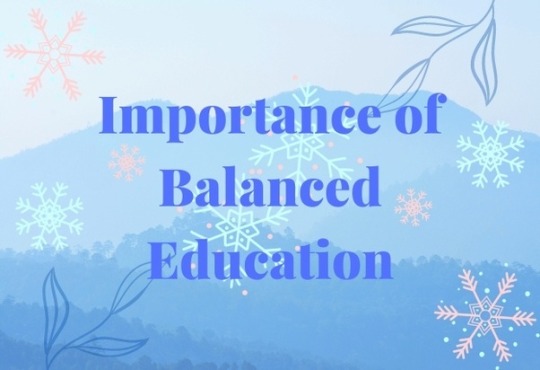
A. Holistic development beyond academics
Extracurricular activities play a crucial role in promoting holistic development by addressing aspects of a student's life beyond academics. While academic achievement is important, a well-rounded education encompasses personal growth, social skills, and the development of lifelong interests and passions. Extracurricular activities provide a balanced approach to education that nurtures students' overall well-being.
B. Creating well-rounded individuals
Participating in extracurricular activities helps students become well-rounded individuals. It encourages them to explore diverse interests, develop multiple skill sets, and engage in activities beyond their comfort zones. Well-rounded individuals are better equipped to adapt to changing environments, collaborate effectively, and approach challenges with a broader perspective.
C. Preparation for future success and challenges
Extracurricular activities prepare students for future success by equipping them with essential skills and qualities. The experiences gained through these activities, such as leadership, teamwork, resilience, and time management, are highly valuable in various aspects of life, including higher education, careers, and personal relationships. The skills acquired through extracurricular involvement contribute to the holistic development of students and prepare them for the challenges they may encounter in their future endeavors.
V. Impact of Extracurricular Activities on College Admissions

A. Recognition of students' involvement in extracurricular activities
Colleges and universities often recognize and value students' participation in extracurricular activities during the admissions process. Admissions officers consider extracurricular involvement as an indicator of a student's motivation, passion, and ability to manage their time effectively. Active participation in a diverse range of activities demonstrates a student's commitment and willingness to go beyond academic requirements.
B. Demonstrating leadership skills and initiative
Extracurricular activities provide opportunities for students to showcase their leadership skills and initiative. Holding leadership positions within clubs, organizing events, or initiating community service projects are all examples of how students can demonstrate their ability to take charge, motivate others, and make a positive impact. These experiences can significantly enhance a student's college application and make them stand out among their peers.
C. Differentiating applicants in the college admissions process
Engaging in extracurricular activities allows students to differentiate themselves from other applicants with similar academic profiles. Admissions officers seek students who bring unique perspectives and diverse experiences to their campus community. Extracurricular involvement can help students showcase their passions, interests, and achievements, making their college applications more compelling and memorable.
VI. Success Stories: Examples of Students Benefiting from Extracurricular Activities

A. Profiles of students who excelled in their chosen activities
Highlighting success stories of students who have excelled in their chosen extracurricular activities provides real-life examples of the impact of participation. Whether it's a student who represented their school in a national sports competition, won awards in artistic endeavors, or initiated a successful community service project, these stories demonstrate how extracurricular activities have positively influenced students' personal and academic growth.
B. Testimonials from alumni about the impact of extracurricular involvement on their personal and professional growth
Alumni testimonials offer firsthand accounts of how extracurricular activities have influenced their personal and professional journeys. These testimonials can shed light on how participation in activities such as debate clubs, music ensembles, or entrepreneurship programs helped shape their skills, fostered their passions, and contributed to their overall development. Hearing from successful alumni can inspire current students to actively engage in extracurricular activities and explore their potential.
VII. Challenges and Overcoming Barriers

A. Balancing academic workload and extracurricular commitments
One of the challenges students face is balancing their academic workload with their extracurricular commitments. Heavy academic demands can sometimes make it difficult for students to dedicate sufficient time and energy to their extracurricular pursuits. However, effective time management, prioritization, and support from parents and schools can help students find a balance that allows them to excel academically while still engaging in activities they are passionate about.
B. Inclusivity and accessibility of activities for all students
Ensuring inclusivity and accessibility of extracurricular activities for all students is essential. Schools must strive to offer a diverse range of activities that cater to different interests and abilities. Additionally, efforts should be made to create an inclusive environment where students from all backgrounds feel welcomed and encouraged to participate, regardless of their skill level or prior experience.
C. Addressing financial constraints and resource limitations
Financial constraints and resource limitations can pose barriers to student participation in certain extracurricular activities. Schools can address this challenge by providing scholarships, grants, or sponsorship opportunities to students who face financial difficulties. Collaboration with external organizations or seeking community support can also help secure additional resources and ensure that students have equal opportunities to engage in extracurricular activities.
VIII. Parental Involvement and Support

A. Encouraging parents to actively engage in their child's extracurricular activities:
Parental involvement and support play a crucial role in students' extracurricular engagement. Parents can encourage and motivate their children to explore different activities, understand their interests, and make informed choices. Attending their child's performances, matches, or events, as well as providing transportation and logistical support, demonstrate parents' commitment and encouragement.
B. Creating a supportive environment at home:
A supportive environment at home positively impacts students' participation in extracurricular activities. Parents can create a routine that allows for sufficient time and energy dedicated to both academics and extracurricular pursuits. Additionally, fostering open communication, celebrating achievements, and recognizing the value of extracurricular involvement can further motivate and inspire students to actively engage in these activities.
C. Recognizing the role of parents as partners in students' holistic development:
Parents play a vital role as partners in their child's holistic development. They can collaborate with schools to understand the available extracurricular options, provide feedback and suggestions, and actively participate in school events or committees related to extracurricular activities. Parent-school partnerships enhance the overall experience for students and contribute to the growth and success of extracurricular programs.
IX. Conclusion
Extracurricular activities play a crucial role in the education system of international schools in Dubai. These activities go beyond the academic curriculum, offering students opportunities for personal growth, skill development, and cultural exposure. Engaging in extracurricular activities enables students to explore their passions, discover new talents, and develop essential life skills such as teamwork, leadership, and time management. Additionally, these activities foster a sense of community, allowing students from diverse backgrounds to come together, share experiences, and build meaningful relationships. International schools in Dubai recognize the importance of a holistic education and actively promote extracurricular activities to ensure that students receive a well-rounded learning experience. By participating in these activities, students not only enhance their academic performance but also develop into well-rounded individuals who are better equipped to face the challenges of the future.
0 notes
Text

The primary aim of HappyMandarin Spring Camp is to reinforce and expand student’s vocabulary beyond the confines of textbooks and encouraging them to apply their language skills in a Mandarin-immersive environment conducive to active learning through fun and games.
#happymandarin#chinese international school dubai#chinese language institute#learn chinese language from basics
0 notes
Text
British School Dubai - Regent International School is a British School in Dubai for EYFS to Year 13 with rich history of 40 years & follows the National Curriculum of England.The school's highly qualified and experienced faculty use innovative teaching methods to create a stimulating and engaging learning environment that encourages students to explore and excel.
0 notes
Text

IB School
Sunmarke School in Dubai offers the International Baccalaureate Diploma Programme, a holistic education that prepares students for global success. With a rigorous curriculum and a focus on critical thinking, it equips students with essential skills for university and beyond.
0 notes
Text

British School Dubai - Regent International School is a British School in Dubai for EYFS to Year 13 with rich history of 40 years & follows the National Curriculum of England.he school's highly qualified and experienced faculty use innovative teaching methods to create a stimulating and engaging learning environment that encourages students to explore and excel.
1 note
·
View note
Text
BRITISH SCHOOLS IN DUBAI
Elevate your child's learning experience with British Schools In Dubai. A blend of tradition and innovation, nurturing young minds for global success!
#Eyfs Curriculum Schools#British Schools In Dubai#Best Uk Schools In Dubai#British International Schools#Dubai British School
0 notes
Text

Albert Einstein said, “Play is the highest form of research”. In the Early Years at Durham, our children learn through play, developing inquisitive minds, practical skills and confidence for life.
0 notes
Text
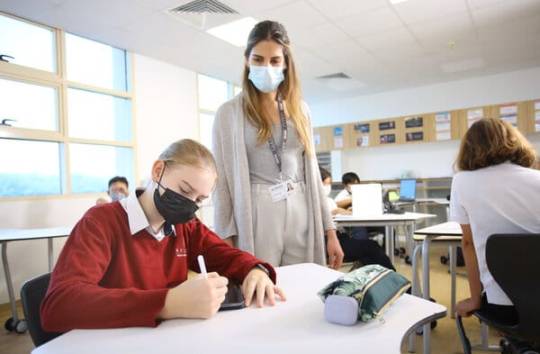
British School Dubai - Regent International School is a British School in Dubai for EYFS to Year 13 with rich history of 40 years & follows the National Curriculum of England.
0 notes
Text
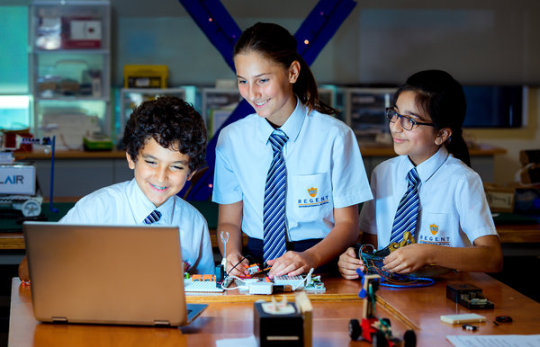
British School in Dubai - Regent International School is a British School in Dubai for Early Year Foundation Stage to Year 13 with rich history of 40 years & follows the National Curriculum of England. Enquire now for fees & admission for Regent International School.
1 note
·
View note
Text
Why is Dubai an ideal destination for international education?

Dubai, located in the United Arab Emirates (UAE), has emerged as a prominent destination for international education. This introduction aims to provide an overview of why Dubai is considered an ideal choice for students seeking a high-quality education abroad.
International schools in Dubai has witnessed a significant rise in popularity as an educational hub. The city's investment in education, along with its global recognition and reputation, has attracted students from around the world. The following sections will delve deeper into the reasons behind Dubai's growing popularity.
II. Global Reputation of Dubai's Education System

A. Overview of Dubai's education system and its international recognition
Dubai's education system is known for its commitment to academic excellence and innovative teaching methodologies. The government has implemented policies and initiatives to enhance the quality of education in the city. As a result, Dubai's schools and universities have gained international recognition and accreditation from esteemed educational bodies.
B. Discuss the high academic standards maintained by schools in Dubai
Schools in Dubai strive to maintain high academic standards to ensure students receive a quality education. They employ well-qualified and experienced teachers who are trained in delivering rigorous curricula. Schools often undergo rigorous evaluations to maintain their standards and offer a conducive learning environment.
C. Emphasize the quality of education offered in Dubai's international schools
Dubai's international schools are particularly renowned for their exceptional quality of education. They often follow internationally recognized curricula such as the International Baccalaureate (IB) or British, American, or Indian curricula. These schools focus on holistic development and provide students with a well-rounded education that prepares them for higher education and future careers.
III. Multicultural Environment and Global Exposure

A. Highlight the multicultural nature of Dubai
Dubai is a melting pot of cultures, with a diverse population comprising people from various nationalities and backgrounds. Students studying in Dubai get the opportunity to interact and learn from peers of different cultures, fostering a multicultural environment.
B. Discuss the benefits of studying in a diverse and inclusive environment
Studying in a diverse environment promotes cultural understanding, tolerance, and acceptance. Students gain exposure to different perspectives, traditions, and languages, broadening their horizons and nurturing a global mindset. This exposure prepares them to thrive in an increasingly interconnected world.
C. Explore the opportunities for cultural exchange and exposure to different perspectives
Dubai's multicultural environment offers numerous opportunities for cultural exchange. International schools often organize events, festivals, and activities that celebrate the diversity of their student body. Additionally, students can engage in extracurricular clubs, cultural workshops, and community service projects that further enhance their global exposure.
IV. World-Class Infrastructure and Facilities

A. Describe the state-of-the-art facilities available in Dubai's international schools
Dubai's international schools boast modern and state-of-the-art infrastructure. They are equipped with advanced classrooms, well-stocked libraries, science and computer labs, sports facilities, performing arts centers, and dedicated spaces for extracurricular activities. These facilities provide students with a conducive environment for learning and personal growth.
B. Highlight the advanced technology and resources utilized in classrooms
Dubai's international schools prioritize the integration of technology into the learning process. They often provide students with access to cutting-edge resources, such as interactive whiteboards, tablets, educational software, and online platforms. These technological advancements enhance the learning experience and prepare students for the digital age.
C. Discuss the importance of a conducive learning environment for students' success
A conducive learning environment plays a crucial role in students' academic success and overall well-being. Dubai's international schools prioritize creating supportive and nurturing environments where students feel motivated, engaged, and safe. This focus on the learning environment contributes to the holistic development of students.
V. Internationally Recognized Curricula and Certifications

A. Overview of the diverse curricula offered in Dubai's international schools
Dubai's international schools offer a wide range of curricula to cater to the diverse needs and preferences of students. Popular curricula include the International Baccalaureate (IB), British Curriculum (IGCSE, A-Levels), American Curriculum, and Indian Curriculum (CBSE, ICSE).
B. Highlight the advantages of globally recognized educational programs
Globally recognized educational programs such as the IB, Cambridge IGCSE, and Advanced Placement (AP) provide students with opportunities for seamless transitions between schools and countries. These programs offer rigorous academic standards, critical thinking skills, and a focus on interdisciplinary learning, preparing students for higher education and future careers.
C. Discuss the flexibility of curricula to meet students' individual needs
Dubai's international schools often offer flexibility in curriculum choices, allowing students to tailor their educational path based on their strengths, interests, and future aspirations. This customization ensures that students receive an education that aligns with their individual needs and goals.
VI. Language Learning Opportunities

A. Discuss the availability of language courses in Dubai's international schools
Dubai's international schools recognize the importance of language learning and often offer a wide range of language courses. These courses include English as a Second Language (ESL), Arabic (as per UAE requirements), as well as additional language options such as French, Spanish, Mandarin, and more.
B. Highlight the advantages of learning multiple languages in a multilingual environment
Learning multiple languages in a multilingual environment like Dubai has several advantages. It enhances cognitive abilities, improves communication skills, and fosters cultural understanding. Proficiency in multiple languages also opens doors to global opportunities in academia, business, and diplomacy.
C. Explain how language skills enhance cultural understanding and global communication
Language skills enable students to effectively communicate and connect with people from different cultures and backgrounds. They promote cultural understanding, empathy, and respect, which are essential qualities for successful global citizens. Language proficiency also facilitates smoother integration into diverse communities.
VII. Higher Education and Career Prospects

A. Discuss the opportunities for higher education in Dubai and abroad
Dubai offers a range of higher education institutions, including universities and colleges that provide diverse academic programs. Students can pursue undergraduate and postgraduate degrees across various disciplines. Additionally, Dubai's strategic location serves as a gateway to prestigious universities worldwide.
B. Highlight the advantages of an international education background for university admissions
Having an international education background from Dubai can be advantageous for university admissions. Admissions officers often value students who have experienced diverse learning environments, as it demonstrates adaptability, cultural awareness, and a global perspective.
C. Explore the potential career prospects for graduates of Dubai's international schools
Dubai's position as a global business and trade hub provides graduates of international schools with a wealth of career opportunities. The city offers a thriving job market across sectors such as finance, technology, hospitality, healthcare, engineering, and more. Graduates with international exposure and a strong educational foundation are well-prepared to pursue successful careers.
VIII. Safety and Security

A. Highlight Dubai's reputation as a safe and secure city
Dubai has gained a reputation as one of the safest cities globally, with low crime rates and a robust security infrastructure. The government prioritizes the safety and well-being of residents and visitors, ensuring a secure environment for students pursuing their education in Dubai.
B. Discuss the importance of a safe learning environment for international students
A safe learning environment is crucial for the overall well-being and academic success of international students. Dubai's commitment to safety creates a nurturing atmosphere where students can focus on their studies and personal development without concerns about security issues.
C. Highlight the measures taken to ensure the well-being and security of students
Dubai's international schools implement stringent security measures, including controlled access systems, trained security personnel, and comprehensive emergency protocols. Schools also prioritize student welfare, offering counseling services, health facilities, and robust student support systems.
IX. Extracurricular Activities and Holistic Development

A. Discuss the importance of extracurricular activities for holistic development
Extracurricular activities play a vital role in the holistic development of students. They provide opportunities to explore interests, develop talents, build character, and foster skills such as teamwork, leadership, creativity, and resilience. Dubai's international schools place significant emphasis on extracurricular activities to ensure students' overall growth.
B. Highlight the variety of extracurricular opportunities available in Dubai's international schools
Dubai's international schools offer a wide range of extracurricular activities to cater to diverse interests. These activities may include sports, arts, music, drama, debate, robotics, community service, and more. Students can engage in clubs, competitions, and events that promote their personal and social development.
C. Explain how these activities foster skills such as teamwork, leadership, and creativity
Participating in extracurricular activities fosters skills that are essential for personal and professional success. Students develop teamwork and collaboration skills through team sports or group projects. They cultivate leadership qualities by taking on leadership roles in clubs or student organizations. Additionally, creative pursuits such as arts and music nurture innovative thinking and self-expression.
X. Conclusion
In conclusion, Dubai provides a conducive environment for international students to thrive academically, socially, and personally. Its reputation as a global education hub continues to grow, and students considering an international education should explore the unique opportunities Dubai has to offer.
0 notes
Text
Shaping Tomorrow's Leaders Today: The Role Of Education In Fostering Leadership Skills
In a rapidly evolving world, the demand for effective and visionary leaders is more significant than ever. Today's youth will be the leaders of tomorrow, guiding us through the challenges and opportunities of the 21st century. As we strive to create a better future, it becomes increasingly essential to focus on shaping tomorrow's leaders today. Education, particularly in schools, plays a pivotal role in nurturing the leadership qualities and skills needed to tackle complex global issues. This article explores the critical role of education in shaping the leaders of the future.
Understanding Leadership
Before delving into the importance of education in shaping leaders, it's crucial to comprehend what leadership entails. Leadership is not confined to positions of authority or management roles. It is a set of qualities and skills that enable individuals to influence and inspire others towards a common goal. Effective leadership involves empathy, communication, problem-solving, adaptability, and a clear vision for the future.
Leadership can take various forms, from political and business leadership to social and community leadership. The diversity of leadership roles underscores the significance of educating individuals to become capable leaders across different domains.
The Role of Education
Education serves as the bedrock for the development of leadership skills. It provides a structured environment where students can learn and practice essential skills that will serve them well as future leaders. Here are some key ways in which education plays a pivotal role in shaping tomorrow's leaders:
1. Personal Development and Self-awareness: Education encourages self-awareness and personal development. It helps students understand their strengths, weaknesses, values, and passions. Self-awareness is the foundation of effective leadership, as leaders must have a deep understanding of themselves before guiding others.
2. Critical Thinking and Problem Solving: Schools provide opportunities for students to engage in critical thinking and problem-solving. These skills are indispensable for leaders who must make informed decisions, analyze complex issues, and find creative solutions to challenges.
3. Communication and Collaboration: Effective leaders must be able to communicate their ideas and collaborate with diverse teams. Schools teach students how to articulate their thoughts, actively listen, and work collaboratively with others. Such skills are essential in both personal and professional leadership roles.
4. Adaptability and Resilience: The world is constantly changing, and leaders must adapt to new circumstances and bounce back from setbacks. Education helps students build resilience and adaptability, teaching them that failure is an opportunity for growth rather than a roadblock.
5. Ethics and Values: Leadership must be grounded in ethical principles and values. Schools can instil these values in students, emphasizing the importance of integrity, empathy, and social responsibility in leadership.
6. Vision and Goal Setting: Leaders must have a vision for the future and the ability to set clear goals. Education enables students to dream big, set targets, and work towards achieving them. This vision-driven leadership can have a profound impact on society.
7. Exposure to Diverse Perspectives: Schools often bring together students from various backgrounds and cultures. Exposure to diverse perspectives fosters empathy and cultural competence, which are vital for effective leadership in an increasingly globalized world.
8. Leadership Opportunities: Educational institutions can provide leadership opportunities through clubs, student government, and extracurricular activities. These experiences allow students to practice their leadership skills in a safe and supportive environment.
9. Mentorship and Guidance: Teachers and mentors in educational settings can play a significant role in guiding and inspiring young leaders. Their wisdom and support can help students develop their leadership potential.
10. Encouraging Innovation and Entrepreneurship: Schools can foster an environment that encourages innovation and entrepreneurship. These qualities are essential for leaders who seek to drive change and create new solutions to societal challenges.

Challenges and Opportunities
While education plays a crucial role in shaping tomorrow's leaders, it also faces challenges and opportunities in this regard. The traditional model of education is continually evolving to meet the demands of the modern world. Here are some of the key challenges and opportunities:
Challenges:
Standardized Testing: The emphasis on standardized testing in many educational systems can sometimes stifle creativity and critical thinking, which are vital for leadership.
Access to Quality Education: Disparities in access to quality education can limit the leadership development of individuals from marginalized communities.
Rote Learning: Some educational systems still rely on rote memorization, which hinders the development of critical thinking and problem-solving skills.
Lack of Soft Skills: Educational institutions must do more to prioritize the teaching of soft skills, such as emotional intelligence and communication, in addition to academic subjects.
Teacher Training: Educators need ongoing training and support to effectively nurture leadership skills in their students.
Opportunities:
Technology: Educational technology can enhance the learning experience, providing opportunities for personalized learning and skill development.
Global Collaboration: The digital age enables students to collaborate with peers and mentors from around the world, broadening their perspectives and cultural competence.
Project-Based Learning: This approach encourages students to work on real-world projects, fostering critical thinking, problem-solving, and teamwork.
Experiential Learning: Schools can incorporate experiential learning through internships, service projects, and practical experiences that prepare students for leadership roles.
Social and Emotional Learning (SEL): SEL programs are gaining recognition for their role in developing emotional intelligence and empathy in students, crucial for effective leadership.
Conclusion
Shaping tomorrow's leaders today is an endeavour of paramount importance. Education serves as the foundational pillar upon which leadership skills are built. By fostering self-awareness, critical thinking, communication, adaptability, and ethical values, educational institutions play a vital role in preparing students for leadership roles in various domains. A school in Dubai represents more than just a place of learning; it symbolizes a gateway to a world of opportunities and possibilities. School in Dubai are a testament to the city's commitment to excellence in education. The diverse and inclusive learning environments cater to students from various backgrounds and cultures, promoting tolerance, empathy, and cross-cultural understanding. School in Dubai play a vital role in shaping the leaders of tomorrow.
0 notes
Text
Discover, Learn, Excel: The Path To Personal And Professional Growth
In a world defined by rapid change and continuous evolution, the quest to discover, learn, and excel stands as a timeless journey of personal and professional development. These three words encapsulate the essence of growth, advancement, and success. Whether it's in the realm of education, career, or personal development, the process of discovery, learning, and excelling plays a fundamental role in shaping our lives and pushing the boundaries of human potential. In this article, we will delve into the significance of each of these components and explore how they interconnect to empower us on our life's journey.
Discover: The Power of Exploration
The journey of personal and professional growth often begins with discovery. To discover is to venture into the unknown, to seek new horizons, and to find what lies beyond the familiar. This stage of the journey is about exploring the world around us and, equally importantly, exploring our inner selves.
Discovering the World: The world is an incredibly vast and diverse place. From the highest peaks to the deepest oceans, there is an abundance of knowledge, cultures, and experiences waiting to be uncovered. In today's interconnected world, travel, literature, and the internet provide us with opportunities to explore different cultures, histories, and ideas. Travelling to new destinations and immersing ourselves in different cultures broadens our perspective and enriches our understanding of the world. Reading books and exploring online resources help us learn from the wisdom of others, both past and present.
Discovering Ourselves: Equally crucial is the journey of self-discovery. This involves exploring our own thoughts, emotions, strengths, and weaknesses. Self-reflection, meditation, and mindfulness are tools that help us peel back the layers of our own consciousness. Understanding our motivations, values, and aspirations is the first step towards setting meaningful personal and professional goals.
The process of discovery can be both exhilarating and challenging. It often involves stepping out of one's comfort zone, embracing uncertainty, and embracing the potential for growth and transformation. As we explore the world and ourselves, we gather the raw materials for the learning process, setting the stage for personal and professional development.

Learn: The Foundation of Growth
Learning is the essential bridge between discovery and excellence. It's the phase where we acquire knowledge, develop skills, and refine our understanding. Learning is not a one-time event but a continuous, lifelong process that helps us adapt, innovate, and thrive in an ever-changing world.
Formal Education: Formal education is one of the most structured ways to learn. Schools, colleges, and universities are designed to impart knowledge and skills, ensuring that individuals are well-prepared for their chosen career paths. A strong foundation in subjects like math, science, language, and the arts equips us with the tools to understand and navigate the world effectively.
Informal Learning: In addition to formal education, informal learning is a dynamic source of knowledge. This includes experiences, interactions, reading, and self-study. Informal learning often complements and reinforces the concepts learned in a formal education setting. It's the process of deepening one's understanding and adapting knowledge to real-world situations.
Skills Development: Learning isn't just about accumulating knowledge; it's also about acquiring practical skills. These skills can be highly specialized, such as programming, or more general, like critical thinking, communication, and problem-solving. Skills development allows us to apply our knowledge effectively and makes us valuable contributors in our chosen fields.
Adaptation and Resilience: The ability to learn and adapt is particularly critical in today's fast-paced world. As technology and industries evolve, individuals who continuously learn and adapt have a competitive edge. Learning also enables resilience; it equips us with the tools to overcome challenges, whether in our careers or personal lives.
Excel: The Attainment of Mastery
Excel is the culmination of the journey towards personal and professional growth. It's the point where the knowledge, skills, and experiences gathered during the discovery and learning phases are leveraged to achieve a level of mastery. Excellence is not merely about achieving success; it's about striving for the highest standards of performance and continually pushing the boundaries of one's capabilities.
Professional Excellence: In the professional arena, excellence is often synonymous with success. It's the ability to excel in a chosen career or field of expertise. This might involve achieving leadership positions, groundbreaking innovations, or becoming a recognized authority in one's domain. Professional excellence is not just about personal gain but also about making a positive impact on society, whether through leadership, innovation, or mentorship.
Personal Excellence: Personal excellence extends beyond the professional sphere. It's about being the best version of ourselves in all aspects of life. This includes maintaining physical and mental well-being, fostering meaningful relationships, and contributing to one's community. Personal excellence is a holistic approach to life that emphasizes balance, purpose, and fulfilment.
Continuous Improvement: One of the hallmarks of excellence is the commitment to continuous improvement. Even when we achieve a high level of expertise or success, there is always room to grow. Embracing a growth mindset ensures that we remain open to new challenges, new knowledge, and new heights of achievement.
Legacy and Impact: Finally, excellence is often associated with the desire to leave a lasting legacy and make a significant impact. Whether it's in the form of philanthropy, art, science, or social change, individuals who attain excellence often seek to contribute to the betterment of humanity and the world.
Conclusion
In conclusion, the institution of a school plays a pivotal role in shaping the trajectory of individuals' lives, fostering personal and academic growth, and laying the foundation for a prosperous future. Schools serve as the cradle of knowledge, the sanctuary of curiosity, and the crucible of character development. Their significance extends beyond the classroom, influencing the broader society and contributing to the overall well-being of a nation. A school is not just a place for the transfer of information but a platform for the cultivation of critical thinking, creativity, and the acquisition of essential life skills. It is here that students embark on their journey of discovery, learning, and self-improvement. The knowledge acquired within the walls of a school not only prepares students for their future careers but also equips them with the tools to be informed, responsible citizens capable of navigating the complexities of the world.
0 notes
Text

British School Dubai
Regent International School is a British School in Dubai for EYFS to Year 13 with rich history of 40 years & follows the National Curriculum of England.
0 notes
Text
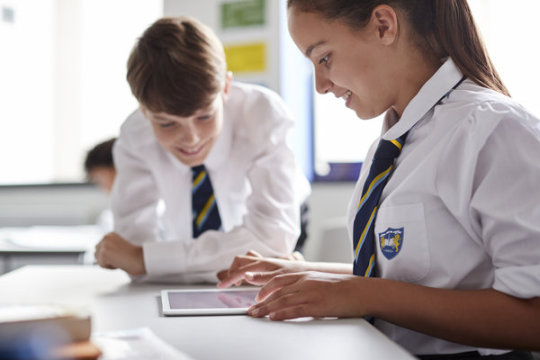
Secondary school in dubai- Regent Secondary School in Dubai provides a comprehensive curriculum from Year 10 to Year 13, covering.Their program fosters academic excellence while nurturing individual talents, preparing students for success beyond secondary education. Join us to empower your child's future. Inquire now for more details.
1 note
·
View note